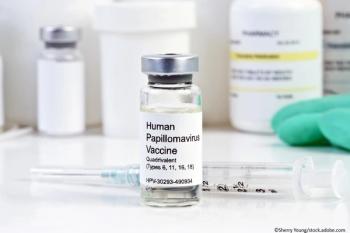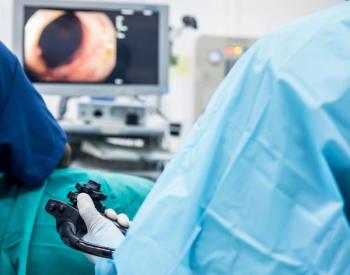
Psychiatrist Gus Alva, MD, discusses newer, faster depression screening approaches that primary care clinicians can implement.









Psychiatrist Gus Alva, MD, discusses newer, faster depression screening approaches that primary care clinicians can implement.

Fendrick discusses the balance between colonoscopy and non-invasive tests for colorectal cancer screening, aiming for better patient outcomes.

Completion of the screening pathway—not test selection alone—may define quality going forward.

Moving patients from considering screening to completing it remains the central challenge in colorectal cancer prevention, Fendrick explained to Patient Care.

Fendrick considers the current state of colorectal cancer screening in the US, emphasizing limited colonoscopy capacity and patient preferences for at-home tests.

Your daily dose of the clinical news you may have missed.

Episode highlights include a new AD blood test for PCPs, sleep effects of elinzanetant among postmenopausal women, lung cancer screening gains, and more.

A cohort study of 531 851 primary care patients found routine AUDIT-C alcohol screening scores predict 8-year all-cause mortality, with strongest effects in younger adults.

Your daily dose of the clinical news you may have missed.

The updated guideline from the American Cancer Society introduces self-collection for HPV testing and new exit criteria to enhance accessibility.

Two new Cochrane reviews confirm HPV vaccines significantly reduce cervical cancer risk, especially when given before age 16, with no serious safety concerns.

Universal age-based screening, starting at age 40, could detect more than 90% of tumors compared to risk-based screening, according to Feinberg School of Medicine researchers.

Real-world data from 20 000 patients demonstrate significantly higher adherence rates with Shield blood test vs colonoscopy and stool-based screening methods.

Donna Plecha, MD, discusses how AI-powered mammography risk prediction and polygenic risk scores will enable personalized breast cancer screening within the next decade.

Breast imaging expert, Donna Plecha, MD, provides a roadmap for primary care physicians to implement risk assessment tools and high-risk clinic referrals in their practice.

New research links high ultra-processed food intake to increased risk of precursors for early-onset colorectal cancer in women under 50.

Topics include rideshare support for colonoscopy, rt-CGM benefits in GDM, semaglutide and food noise, vaccine views, and MI etiology.

A 10-year microsimlation model of annual MCED testing revealed signficant reductions in late-stage cancer diagnoses, particularly for cancers lacking routine screening,

Access, cost, and clinician awareness remain significant barriers to implementing supplemental breast screening, according to Plecha.

Breast imaging expert Donna M. Plecha, MD, explains the FDA's dense breast notification requirement and when to recommend supplemental MRI screening.

Patient preferences favor home-based tests but MDs do not, while cost barriers significantly impact follow-up completion, according to the 2 new analyses.

Colorectal cancer screenings for 45- to 49-year-olds surge nearly tenfold after new guidelines, highlighting significant shifts in public health practices.

TMS 2025: Donna Plecha, MD, discusses how primary care physicians should approach breast cancer screening in women with dense breasts and use MRI effectively.

New research from TMS 2025 covers menopause effects on brain volume, hormone therapy's role in weight loss with GLP-1s, and dense breast screening updates.

Early breast cancer screening at age 40, especially with 3D mammograms, significantly improves survival rates and quality of life, according to Dr Plecha.